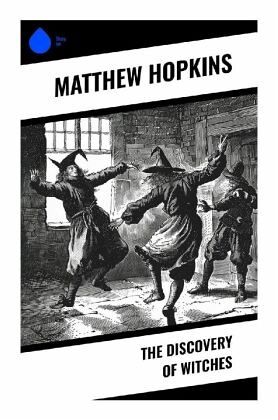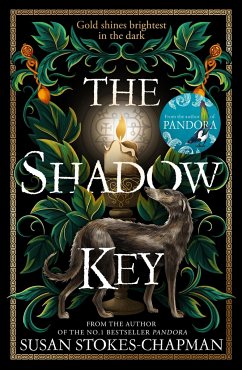
The Discovery of Witches
Versandkostenfrei!
Versandfertig in 6-10 Tagen
7,70 €
inkl. MwSt.

PAYBACK Punkte
0 °P sammeln!
In "The Discovery of Witches," Matthew Hopkins offers a chilling exploration into the witch hunts of 17th-century England, employing a compelling blend of narrative prose and polemic. As the self-styled Witchfinder General, Hopkins meticulously chronicles the methods used to identify and persecute alleged witches, shedding light on the socio-political turmoil and superstition that characterized the English Civil War. The text is a rich tapestry of historical context, revealing the intersection of fear, religion, and societal unrest that fueled these brutal inquisitions, all articulated in a di...
In "The Discovery of Witches," Matthew Hopkins offers a chilling exploration into the witch hunts of 17th-century England, employing a compelling blend of narrative prose and polemic. As the self-styled Witchfinder General, Hopkins meticulously chronicles the methods used to identify and persecute alleged witches, shedding light on the socio-political turmoil and superstition that characterized the English Civil War. The text is a rich tapestry of historical context, revealing the intersection of fear, religion, and societal unrest that fueled these brutal inquisitions, all articulated in a direct and forceful literary style that captures the urgency of the moment. Matthew Hopkins, a fervent Puritan with a keen interest in the supernatural, was propelled into infamy during the witch craze that swept through England. His experiences during a period rife with paranoia and conflict undoubtedly shaped his perspective, as evidenced by the zealousness with which he pursued what he deemed to be divine justice. Hopkins's background in law also played a pivotal role in the legalistic framing of his arguments, offering readers insight into his motivations and the broader implications of his actions. "The Discovery of Witches" is a crucial read for anyone interested in the historical narratives of fear and justice, as it not only deepens our understanding of the witch hunts but also invites critical reflection on the power dynamics of accusation and belief. This work serves as both a historical document and a cautionary tale that remains relevant in discussions surrounding belief, justice, and societal fear today.












